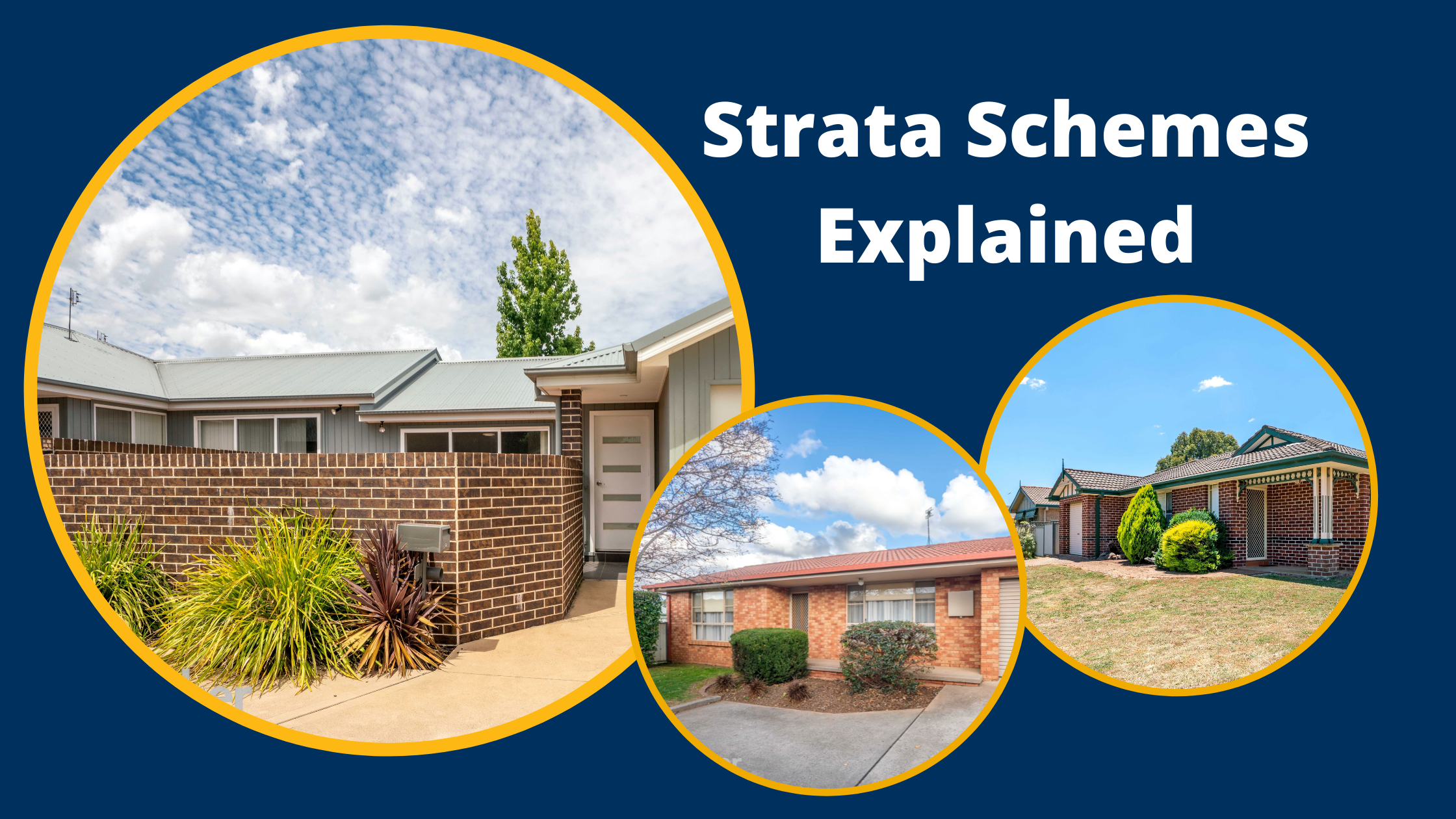Strata Schemes Explained
When buyers are looking at a unit or townhouse some of the questions we are often asked are in relation to what’s involved with the “strata” that goes hand in hand with a property that is part of a Strata Scheme.
There is lots of information available if you care to go searching but we’ve done that for you, and this is quick breakdown of what’s involved.
What You Need to Know About Strata Schemes
You’re thinking about buying an apartment or townhouse, but are you ready to navigate the ins-and-outs of strata living?
While strata may seem complex, it exists to make your life as an owner much easier.
It serves as a guide when dealing with the owners’ corporation, helping you to negotiate by-laws, manage common areas and prepare for any fees that may arise as a result of a strata scheme.
Here are some basic pointers, to save you from getting lost in the blur of committees, meetings, levies and bylaws.
What is a strata scheme?
A strata scheme is a system for handling the legal ownership of a portion of a building, or structure.
Living in a strata scheme means that you own your apartment, or ‘lot’, and share ownership of the building’s common areas with your fellow tenants.
Strata titled buildings can be residential in form, and include:
Units
High-rises / Low-rises
Duplexes
Townhouses, or
Villas
Or commercial:
Offices
Retail shops
Factories
Warehouses
Storage units
The laws governing strata schemes vary slightly from state to state.
When you buy into a strata scheme, you also buy into an owners’ corporation.
What is an owners’ corporation?
An owners’ corporation is a legal entity comprising the individuals that own all the various lots in a communal building. In some states, it’s known as the body corporate.
Members of the owners’ corporation share ownership and responsibility for all the ‘common property’, which includes communal areas such as stairwells, gardens, pools, driveways, laundries, lobbies, and building exteriors.
Understanding your strata
So now you own a strata property, what are your obligations to the strata scheme and community?
What are strata bylaws?
Life in a strata scheme is governed by a set of bylaws, which are designed to encourage harmonious communal living, ensure the safety and security of residents, and protect the look and integrity of the building and its surrounds.
Bylaws cover everything from garbage disposal, noise restrictions and parking, to renovations and changes to common property.
They also outline whether pets are allowed and whether you can hang washing on your balcony.
Each scheme sets its own bylaws, so some may have bylaws unique to their property. That said, no bylaws can be harsh or oppressive, and none are allowed to restrict short-term letting, or ban children or assistance animals.
Be aware: Property bylaws are enforceable and penalties can apply to individuals who flout the rules. So make sure you check the guidelines before letting your puppy run free around the common area.
What are strata fees?
Strata levies (also known as strata or body corporate fees) are regular financial contributions made by lot owners that go towards the maintenance of the strata property.
They’re commonly calculated by the size of the lot you own – a three-bedroom unit will have higher levies than a one-bedroom unit – the size of the building complex, its age and amenities.
Facilities that require regular maintenance, such as pools, lifts and gyms, tend to increase levy costs.
There are three main types of levies.
Administrative fund levies – contributions to the administrative fund cover the day-to-day running of the scheme. They cover run-of-the-mill maintenance tasks such as cleaning, gardening, administrative costs, utility bills for common areas, and small maintenance issues.
Sinking fund levies – these are typically used for bigger repairs and renovations that involve large-scale painting, plumbing, or changes to the building’s overall structure.
Special levies – these are designed to cover unexpected or extraordinary expenditures. They’re often raised for major building works, repairs, or structural improvements when there are insufficient funds in the administrative or sinking funds. Examples include roof replacement or termite damage. They’re paid in addition to any other contributions.
Pro tip: Special levies can become a bone of contention between owners and strata managers, so be sure you understand your lot liability before you move in.
Now you understand your obligations as an owner in a strata scheme, let’s take a look at who makes the decisions that affect you and your lot – and how you can have your say.
How do strata meetings work?
Strata meetings are where actionable decisions about the running of the scheme are made. The states mandate that there be at least one meeting every year – known as the Annual General Meeting (AGM).
If there’s a special project that can’t wait for the AGM, Extraordinary or Special General Meetings may be called to cover issues like special levies, bylaws or major works.
All the owners, as well as their representatives, are entitled to attend meetings, and can vote either in-person or by proxy.
As with your levies payable, voting entitlements are worked out by assessing the size of your lot.
If you want to raise an issue at a meeting, you should write to the Strata Secretary with a motion that explains the issue you would like to discuss.
For any decisions to be approved, the meeting has to have a minimum number of owners or lots in attendance. This is known as a quorum.
What is a strata committee?
A strata committee represents the interests of all lot owners. It aims to ensure state strata law and the strata’s own bylaws are followed, and also enforces any decisions made at earlier meetings.
In some cases, it’s also responsible for looking after the administration of your owners’ corporation on behalf of the lot owners.
Committee members are typically elected at the AGM, with all lot owners eligible for election.
If you want to launch any projects to improve the building, joining the committee is your best bet. Although doing so means you’ll have added responsibility and be accountable to the other owners.
How are strata schemes managed?
While many stratas are self-managed, others have designated managers.
Typically independent companies, strata managers eliminate a lot of the complexity and headaches involved in running a scheme.
They arrange repairs, help to draft new bylaws, host the AGM, send out levy notices, and prepare budgets, financial accounts, records and statements.
The information within this article is provided for your general interest and should not be relied upon as a substitute for professional advice.
Source: https://www.realestate.com.au/advice/starters-guide-strata/
Article by: Emma Sorensen, Writer 9/8/19



